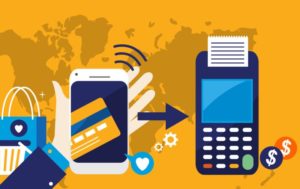The Financial ID Briefing brings you top highlights from the world of biometrics, mobile ID, and finance. It is powered by FindBiometrics and Money20/20.
Bank Fraud Versus Terrorism
![]() When It comes to collective nightmares shared by the American people, a new survey from FICO suggests that banking fraud and identity theft rank higher on the fear-o-meter than terrorism. Thousands of Americans were surveyed online in February and March 2017 by FICO, and 44 percent of that sample indicated that identity theft and banking fraud is their top concern, while 22 percent named death as their top fear, and 18 percent listed being the victim of a terrorist attack.
When It comes to collective nightmares shared by the American people, a new survey from FICO suggests that banking fraud and identity theft rank higher on the fear-o-meter than terrorism. Thousands of Americans were surveyed online in February and March 2017 by FICO, and 44 percent of that sample indicated that identity theft and banking fraud is their top concern, while 22 percent named death as their top fear, and 18 percent listed being the victim of a terrorist attack.
As FindBiometrics’ Alex Perala observed in our coverage: “That’s not to say that identity fraud is scarier than death, of course; rather, it seems to reflect an acknowledgement of its relative likelihood, with concerns about digital fraud rising as more banking and other sensitive transactions are done online.”
Fascinatingly, biometric technologies are currently being deployed around the world to combat both banking fraud and terrorism. Voice recognition for phone banking, multimodal biometric login for financial apps, and behavioral biometrics software online are all helping curb the threat of fraud in finance. Meanwhile, global efforts to combat terrorism have led to the implementation of biometric identification technologies at borders, which not only aid in spotting watch listed travelers but can lead to a more convenient experience for everyday jet-setters. Sadly, for the 22 percent of survey respondents who fear death most of all, biometric technology can’t directly prevent a visit from the grim reaper, but it can help you live a healthier lifestyle.
Holla Android
Android Pay launched in Spain last week, joining its mobile wallet rivals Samsung Pay and Apple Pay in the country. Spain is the 14th market in which Android Pay has launched, and is arrives with official support from El Corte Inglés, 100 Montaditos, H&M, Starbucks, Deliveroo, Fancy, Hotel Tonight, Showroomprive.com, TransferWise, Vueling, and Zara.
last week, joining its mobile wallet rivals Samsung Pay and Apple Pay in the country. Spain is the 14th market in which Android Pay has launched, and is arrives with official support from El Corte Inglés, 100 Montaditos, H&M, Starbucks, Deliveroo, Fancy, Hotel Tonight, Showroomprive.com, TransferWise, Vueling, and Zara.
Android Pay is unique in the mobile wallets space for not requiring biometric authentication to approve purchase transactions. Apple Pay requires fingerprint verification via the Touch ID sensor on the iPhone, and Samsung Pay supports iris biometrics in addition to the scanning of a finger. Google’s mCommerce solution, while the subject of some exciting facial recognition trial programs, is secured by a PIN code.
Earlier this year, Google indicated plans to launch Android Pay in Spain, Taiwan, and Brazil. The Taiwanese launch occurred in June, leaving Brazil as the next most likely country to receive Android-based mCommerce.
Cyborg Payments
 People are implanting new payment technology into their hands. Over 80 employees of Three Squared Market have injected their company’s own RFID microchips – developed by Biohax – into their hands for retail and access control applications. With a wave of the hand, an implanted employee can access secured areas and make purchases at vending machines and custom tailored mini-shops.
People are implanting new payment technology into their hands. Over 80 employees of Three Squared Market have injected their company’s own RFID microchips – developed by Biohax – into their hands for retail and access control applications. With a wave of the hand, an implanted employee can access secured areas and make purchases at vending machines and custom tailored mini-shops.
While the cyborg employees have shown a great deal of enthusiasm for the futuristic ID technology, Carnegie Mellon IT and public policy professor Alessandro Acquisti harbored skepticism, speaking to The New York Times. Acquisti noted that the chips could pose security vulnerabilities in the business, and suggested further corporate uses beyond payments and access that employees might be less excited about.
Controversy aside, the trialing of payment implants illustrates just how far some are willing to go in search of the next big financial technology.
—
July 31, 20-17 – by Peter B. Counter


Follow Us